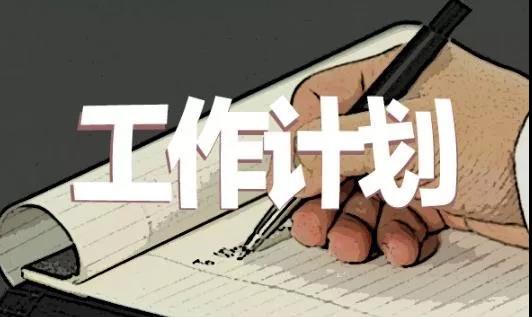2020最新高一英语知识点总结
时间:2021-03-23 11:17:58 来源:天一资源网 本文已影响 人 
高一英语是很多同学的噩梦,知识点众多而且杂,对于高一的新生们很不友好,小编建议同学们通过总结知识点的方法来学习英语,这样可以提高学习效率。下面就是小编给大家带来的高一英语知识点,希望能帮助到大家!
高一英语知识点总结1
一、一般过去将来时
1.概念:立足于过去某一时刻,从过去看将来,常用于宾语从句中。
2.时间状语:The next day (morning, year…),the following month(week…),etc.
3.基本结构:主语+was/were +going to + do+其它;主语+would/should + do+其它
4.否定形式:主语+was/were+not + going to + do; 主语+would/should + not + do.
5.一般疑问句:was或were放于句首;would/should 提到句首。
6.例句:He said he would go to Beijing the next day.他说他第二天要去北京。
I asked who was going there.我问,谁要去那里。
二、 现在进行时
1.概念:表示现阶段或说话时正在进行的动作及行为。
2.时间状语:Now, at this time, days, etc. look. listen
3.基本结构:主语+be +doing +其它
4.否定形式:主语+be +not +doing+其它
5.一般疑问句:把be动词放于句首。
6.例句:How are you feeling today?你今天感觉如何?
He is doing well in his lessons.在课上他表现得很好。
高一英语知识点总结2
1.基础梳理
achievement Quaker welfare project institute specialist specialize chimp campaign connection landmine organization behave behavior shade move off worthwhile nest bond observe childhood outspoken respect argue entertainment lead a…life crowd crowd in inspire support look down on/upon refer audience by chance come aross career rate sickness intend emergency generation determination kindness considerate deliver carry on modest
2.词语归纳
1)achieve
表示“完成,到达”。
区别achieve,reach,gain:
achieve着重表示达到一定目的的过程中所需要的技能,耐性和努力。
reach指达到任何目标、目的或指达到发展过程中的某个阶段。
gain强调经过奋斗才达到所期望的目标、优势或者有利地位。
2)condition
表示“条件”,condition为单数时,表示人/物所处的“状态”。
conditions(复数)指一般情况,环境。
in good/poor condition状况好/不好。
out of condition状况不好。
on condition that在……条件下,假使。
on no condition决不。
3)connection
表示“连接,关系”。
connections亲戚。
in connection with与……有关。
4)behave
表示“举止,举动,行为表现”。
behave oneself表现良好,行为良好。
behave as起……作用,表现为……。
5)worthwhile
表示“值得做的,值得出力的”。
句型It is worhtwhile doing/to do sth“干……是值得的”。
6)observe
表示“观察,注意”,可接省略to的不定式的复合结构,当observe用被动语态时,其后的不定式应回复to。
observe后也可接由现在分词构成的复合结构。
后接that从句,表示“注意到,说”。
observe还可以表示“遵守,庆祝”。
7)respect
作动词,后直接跟宾语。
respect oneself自重,自尊。
作名词,表示“尊重,尊敬”。have/show respect for意为“对……尊重/尊敬”。
have respect to注意,考虑。
表示“敬意,问候”时,用复数形式,常与give,send,pay连用。
in respect of sth就某方面而言。
with respect to 涉及,关于。
8)argue
表示“争论,辩论”。
argue with sb(about/for…)(为/关于……)和某人辩论。
argue about就某事而论。
argue for/against…辩论赞成……/反对……。
argue back反驳。
argue sb into/out of doing sth说服某人做/不做某事。
9)inspire
表示“鼓舞,激发”。
inspire sb(to do sth)赋予某人灵感,启迪。
inspire sb(with sth)/inspire sth in sb激励/鼓励某人的……。
形容词inspired表示“有创造力的,有雄心壮志的,受灵感启示的”;形容词inspiring表示“鼓舞人心的,使人感兴趣的”。
10)support
作及物动词,表示“支撑,扶持,养活”。
作可数名词,表示“支撑物,支持的人/物,赡养者,赞助金”。
作不可数名词,表示“支持,养家,赡养”。
come to one’s support来支持某人。
in support后备的,准备给予支援的。
in support of支持,证明。
11)look down on/upon
表示“蔑视,瞧不起”。也可以用look one’s nose at来表示。
有关look的短语:
look for寻找,期待 look forward to doing盼望做某事 look on…as把……看作
look out朝外看,当心,注意,查出 look through浏览,仔细查看,审核
look up查看,抬头看 look after照顾 look back on/to sth 追思,回顾
look in(on sb)顺便访问 look into sth调查 look over sth 检阅,检查
look to注意 look sb up and down上下打量某人
12)explain
作及物动词,表示“解释,说明”,常接名词,代词,从句作宾语,若表示“向某人解释某事”,应说explain sth to sb或explain to sb sth。
explain oneself为自己的行为辩解。
explain后接由连接代词或连接副词引导的不定式或短语作宾语。
13)strike
表示“打,击,敲”。
表示“通过摩擦产生(火花,光亮)。
表示“打动,引起,迷住,罢工”。
表示“打”时,常套用在“动词+sb+介词+the+表示身体某一部位的名词”句型中。
strike to向……打去。
strike for/against为争取/反对……而罢工。
srike sb down把某人_,使某人丧命。
strike on sth意为获得/发现某事。
strike home击中要害。
14)consideration
表示“考虑,体谅”。
take sth into consideration考虑某事,体谅某事。
leave sth out of consideration忽略某事,不重视某事。
in consideration of sth作为对……的回报,考虑到。
15)deliver
表示“递送,释放,发表(演说)”。
deliver a baby接生。
deliver on sth不负重望,履行诺言。
16)devote
devote…to献身于……,专心于……。to是介词。
devote oneself to献身于,致力于,专心于。
形容词devoted表示“忠实的,热爱的,全心全意的”。be devoted to sb/sth 表示“对某人/某物忠实(热爱,全心全意)。
3.语法
主谓一致
主谓一致是指:
1) 语法形式上要一致,即单复数形式与谓语要一致。
2) 意义上要一致,即主语意义上的单复数要与谓语的单复数形式一致。
3) 就近原则,即谓语动词的单复形式取决于最靠近它的词语,
一般来说,不可数名词用动词单数,可数名词复数用动词复数。
但当不可数名词前有表示数量的复数名词时,谓语动词用复数形式。
1 并列结构作主语时谓语用复数
注意:
当主语由and连结时,如果它表示一个单一的概念,即指同一人或同一物时,谓语动词用单数,and 此时连接的两个词前只有一个冠词。
2 主谓一致中的就近原则
1) 当there be 句型的主语是一系列事物时,谓语应与最邻近的主语保持一致。
2)当either…or…与neither…nor,连接两个主语时,谓语动词与最邻近的主语保持一致。
如果句子是由here, there引导,而主语又不止一个时,谓语通常也和最邻近的主语一致。
3 谓语动词与前面的主语一致
当主语后面跟有with, together with, like, except, but, no less than, as well as 等词引起的短语时,谓语动词与前面的主语一致。
4 谓语需用单数
1) 代词each和由every, some, no, any等构成的复合代词作主语,或主语中含有each, every, 谓语需用单数。
2) 当主语是一本书或一条格言时,谓语动词常用单数。
3) 表示金钱,时间,价格或度量衡的复合名词作主语 时,通常把这些名词看作一个整体,谓语一般用单数。(用复数也可,意思不变)。
5 指代意义决定谓语的单复数
1) 在代词what, which, who, none, some, any, more, most, all等词的单复数由其指代的词的单复数决定。
2) 集体名词作主语时,谓语的数要根据主语的意思来决定。如family, audience, crew, crowd, class, company, committee等词后用复数形式时,意为这个集体中的各个成员,用单数时表示该个集体。
但集合名词people, police, cattle, poultry等在任何情况下都用复数形式。
3)有些名词,如variety, number, population, proportion, majority 等有时看作单数,有时看作复数。
A number of +名词复数+复数动词。
The number of +名词复数+单数动词。
A number of books have lent out.
The majority of the students like English.
population的谓语动词形式与表语一致,一般来说与分数,百分数连用时,谓语动词用复数。
6 与后接名词或代词保持一致
1) 用half of, part of, most of, a portion of 等词引起主语时,动词通常与of后面的名词,代词保持一致。
2) 在一些短语,如 many a 或 more than one 所修饰的词作主语时,谓语动词多用单数形式。但由more than… of 作主语时,动词应与其后的名词或代词保持一致。
7 在定语从句中主语是关系代词who , that , which , 谓语动词的数应与先行词的数一致。
注意:在“one of +复数名词+ who/that/which”引导的定语从句中,从句谓语的单复数取决 于one前是否有the (only)、the very。如果有,从句的谓语动词用单数,如没有the only, 就用复数形式。
在定语从句中主语是关系代词who , that , which , 谓语动词的数应与先行词的数一致。
高一英语知识点总结3
一、过去分词
过去分词兼有动词、副词和形容词的特征,可以带宾语或受状语修饰。过去分词和宾语或状语一起构成过去分词短语。它在句中可以作定语、表语、宾语补足语或状语。这节课讲解作定语、表语的用法。
1. 作定语
作定语的过去分词如果是单词,一般放在被修饰词的前面;过去分词短语作定语,一般放在被修饰词的后面。例如:
There are many fallen leaves on the ground.
This is a book written by a worker.
2. 作表语
过去分词作表语,多表示主语所处的状态。
I was pleased at the news.
The door remained locked.
过去分词作表语,相当于形容词,常见的有:delighted, disappointed, astonished, interested, satisfied, surprised, tired, worried, excited, married 等。
过去分词作表语时,应注意与被动结构的区别。系表结构说明主语的状态或具有的性质、特点;被动结构强调谓语动作。
The small village is surrounded by trees.(状态)
The small village was soon surrounded by enemy soldiers.(动作)
I'm interested in chess.(状态)
3. 过去分词做状语
①表时间,相当于一个时间状语从句,有时过去分词前可加连词 when 或 while 来强调时间概念。
Seen from the top of the hill, the city looked like a big garden.
Accepted by the Party, he decided to devote his life to the cause of the Party.
②表原因,相当于一个原因状语从句。
Exhausted, the children fell asleep at once.
Encouraged by the speech, the young people made up their minds to take up the struggle.
③表条件,相当于一个条件状语从句,有时过去分词前可用 if 等词
Heated, water changes into steam.
Given another chance, he will do better.
④表让步,相当于一个though/although引导的让步状语从句。
Laughed at by many people, he continued his study.
⑤表伴随,说明动作发生的背景或情况。
Surrounded by a group of pupils, the old teacher walked into the classroom.
The trainer appeared, followed by five little dogs.
倒装句:
一、here, there, now, then, thus 等副词置于句首, 谓语动词常用 be, come, go, lie, run。
There goes the bell. 铃声响了。
Then came the chairman.主席来了。
Here is your letter. 你的信。
二、否定词置于句首,句子应进行倒装。
neither 放句首
Tod can't swim, neither can I. 托德不会游泳,我也不会。
用于 never, hardly, seldom, scarcely, barely, little, often, at no time, not only, not once, many a time 等词开头的句子。
Never shall I go there again. 我再也不去那了。
Little did he know who the woman was.他基本上不知道那女人是谁。
Seldom was he late for class.他很少上学迟到。
用于 no sooner ... than ..., hardly... when... 和 not until... 的句型中
Hardly had I reached the station when the train left. 我刚到车站,火车就离开了。
No sooner had she gone out than the phone rang. 她刚离开,电话就响了。
Not until the teacher came did he finish his homework. 直到老师来,他才完成作业。
三、用于 only 放句首,修饰副词、介词短语或状语从句的句子。
Only in this way can you master English well. 只有这种方法,你才能学好英语。
Only that time did he do his homework. 直到哪个时间,他才做作业。
Only when he told me did I realize what trouble I was in.
省略句:
一、省略的目的
省略多见于非正式文体,尤其在对话中,省略是一种普遍的现象。英语中的省略一般说来有三个目的:
1.避免重复,减少累赘。省略的主要目的是避免重复,去掉不必要的累赘和繁琐。
Mike said that he would come to school to see me the next day, but he didn't come to school to see me the next day.
Mike said that he would come to school to see me the next day, but he didn't.
(省掉最后九个词,句子简洁了许多)
2.连接紧密,结构紧凑 省略也是使上下文紧密连接的一种修辞手段。
John was the winner in 1994 and Bob in 1998.(Bob 后省略了 was the winner,句子结构显得比较紧凑)
3.强调重点,突出信息 省略的另一作用是突出新的信息
Truth speaks too low, hypocrisy too loud.后一分句省略谓语 speaks,突出了 too loud)
二、句子成分的省略
为了避免重复,或者为了使某一内容引人注目,可以省略某些句子成分而保持句子原意不变。
1.省略主语
Beg your pardon.请你原谅。(= I beg your pardon.))
Serves you right. 你活该(= It serves you right.)
2.省略谓语
Anything the matter? 要紧吗?(= Is anything the matter?)
The river was deep and the ice thin. 河很深,冰很薄。
(= The river was deep and the ice was thin.)
3.省略表语
Are you ready? Yes,I am.(am 后面省略了表语 ready)
4.省略宾语
We have to analyze and solve problems. (analyze 后省略了宾语 problems)
Let's do the dishes. I'll wash and you'll dry.(wash 和 dry 后面省略了宾语 dishes)
5.省略定语
He spent part of the money, and the rest he saved.(the rest 后面省略了定语 of the money)
6.省略状语
(Even)The wisest man cannot know everything.
省略在句子中的应用
在一个句子中,省略可分为依赖上下文省略和不依赖上下文省略两种。前者省略的部分可在句子中找到,但后者可能找不到。
1.简单句中的省略
依赖上下文的省略在对话中最为常用。
Like more beer?(= Would you like more beer?)
—World you mind if I used your telephone?
—Not at all. 一点也不。
(= I do not mind at all.)
—Will he pass this examination?
Probably. 大概会的。(= He will probably pass the examination.)
不依赖于上下文的省略。
All aboard! 请上船(= All go aboard.省略谓语)
Haven't seen you for ages!(省略主语 I)
What about having a game of chess?
Sounds like a good idea.
2.并列句中的省略
(=It sounds like a good idea. 省略主语)
Everybody appears well prepared.
(= Everybady appears to be well prepared. 省略不定式 to be)
并列句中如果前后分句有相同的部分,常常可以省略掉,以避免重复。通常被省略的可以是主语、谓语、宾语或其他万分,或句子万分的一部分。
省略出现在后一分句
John likes collecting stamps but (John) hates listening to music.(省略主语)
省略出现在前一分句
We can (win tomorrow's match), and certainly will,win tomorrow's match.
我们能够,而且一定会在明天的比赛中获胜。(前一分句省略谓语 + 宾语)
前后两个分句都出现省略
They can (pay the full fee ) and (they)should pay the full fee.
复合句中的省略
在主从复合句中,活力的现象是很普遍的。
省略主句的句首部分。(I'm)Sorry I couldn't go.
省略整个主句或主句的一部分(回答问题时常用)。
(It is a)Pity he's failed.
If he says he'll come, he will(come).
3.在一些状语从句中,如果谓语动词是 be,主语又和主句的主语一致,或者主语是 it,常常可以把从句中的主语和 be 省略掉。
以 when, while, once, until 等连词引导的时间状语从句。
When (you are) in Rome do as Rome does.入国问禁,入乡随俗。
4.在比较从句中通常把和主句重复的部分省掉。
省略谓语的全部
James enjoys the theeartre more than Susun.
Tom has as many books as Jack.
省略主语和谓语的一部分
Brown speaks French as fluently as English. (as 后省略了 he speaks)省略表语部分
Mrs White is not so young as she looks.(looks 后省略了 young)
省略主语和谓语的大部分,保留状语
He is working harder than before.(than 后省略了 he worked hard)
省略主语
He drank a little more than was good for him.(than 后省略了 it)省略宾语
You spent more money than I had expected.(expected 后省略了that you should spend)
省略从句的全部
You are getting slimmer. simmer 后省略了than you were before)
主句和从句中可同时省略一些成分。
The sooner (this is done), the better(it will be).
高一英语知识点总结4
1.be good to对……友好be good for对……有益;be bad to…/be bad for…
2.add up加起来 增加
add up to合计,总计
add…to把……加到……
3.not…until/till意思是“直到…才”
4.get sth/sb done使……完成/使某人被……
5.calm down平静下来
6.be concerned about关心,关注
7.当while,when,before,after 等引导的时间状语从句中的主语与主句的主语一致时,可将从句中的主语和be动词省去。
While walking the dog,you were careless and it got loose.
8.cheat in the exam_
9.go through经历;度过;获准,通过
10.hide away躲藏;隐藏
11.set down写下,记下
12.I wonder if…我不知道是不是…
12.on purpose故意
13.sth happen to sb某人发生某事
sb happen to do sth某人碰巧做某事
it so happened that……正巧 碰巧
14.It is the first(second…)that…(从句谓语动词用现在完成时)
15.in one’s power处于……的控制之中
16.It’s no pleasure doing…做…没有乐趣
It’s no good/use doing sth.做某事是没好处/没用的
17.She found it difficult to settle and calm down in the hiding place.it做形式宾语
18.suffer from患…病;遭受
19.so…that…/such…thay…
20.get tired of…对…感到劳累 疲惫
21.have some trouble with sb/sth.在……上遇到了麻烦
22.get along with sb/sth.与某人相处
23.ask(sb)for advice.(向某人)征求建议
24.make后接复合宾语,宾语补足语须用不带to的不定式、形容词、过去分词、名词等。常见的有以下几种形式:
make sb.do sth.让(使)某人做某事
make sb./sth.+adj.使某人/物…
make sb./oneself+v-ed 让某人/自己被…
When you speak,you should make yourself understood.
make sb.+n.使某人成为…
25.alone /lonely.单独的/孤独的
26.I would be grateful if…委婉客气提出请求
27.Why not do…=why don’t you do…
高一英语知识点总结5
一、现在分词和过去分词的构成(形式)
外教一对一 一般式 doing being done http://www.yangjiajiao.com
完成式 having done having been done
过去分词的构成:done
二、过去分词的用法
过去分词一般表示完成的和被动的动作,只有一种形式。
过去分词用法如下:
1.作定语 和现在分词作定语的用法相同。作定语用的过去分词如果是单词,一般放在名词的前面;如果是过去分词短语,要放在名词的后面。
2.作表语
3.作宾语补足语
4.作状语
三、现在分词的用法
1. 作定语 作定语用的分词如果是单词,一般放在名词的前面。如果是分词短语,一般放在名词的后面,它的功用相当于定语从句。
2. 作表语
3. 作宾语补足语 分词在复合宾语中可作宾语补足语。可带这种复合宾语的动词有:see, watch, hear, feel, find, get, keep等。
高一英语语法知识
虚拟语气
虚拟语气也是一个难点。所谓虚拟语气是表示说话人的愿望、假设、猜测或建议,而不表示客观存在的事实。它通过句子的谓语动词的特殊形式来表示。
现归纳如下:纯假设,用虚拟,动词时态退一级:条件句,分主从,主句谓语前加would (should,could,might);表愿望,用虚拟,wish后面接宾语(从句):现在过去与将来,动词时态退一级:提建议,用虚拟,宾语(从句)动词用(should)do:俩建议,三要求,再加坚持与命令
(suggest,advise,demand,require,request,insist,order):It is time和eoukd rather,后接丛句用虚拟:部分主语从句中, 谓语用虚拟结构 (It is necessry
/important/natural/natural/strange/strange that„„should do)。
下面举例说明:
A、If you came tomorrow,we would have the metting. (条件句虚拟)
B、Without air,there would be no living things.(同上)
C、We wish we had arrived there two hours earlier.(表示愿望虚拟)
D、He demanded that we (should)start right away.(表示建议虚拟)
E、It is(high)time that we left (should leave)now.(特殊从句虚拟)
F、I would rather you gave me the book.(同上)
G、It is necessary that we should clean the room everyday,(主语从句虚拟) H、He speaks English so fluently as if he were English. (特殊从句虚拟)
高一英语知识点
一、一般过去将来时
1.概念:立足于过去某一时刻,从过去看将来,常用于宾语从句中。
2.时间状语:The next day (morning, year…),the following month(week…),etc.
3.基本结构:主语+was/were +going to + do+其它;主语+would/should + do+其它
4.否定形式:主语+was/were+not + going to + do; 主语+would/should + not + do.
5.一般疑问句:was或were放于句首;would/should 提到句首。
6.例句:He said he would go to Beijing the next day.他说他第二天要去北京。
I asked who was going there.我问,谁要去那里。
二、 现在进行时
1.概念:表示现阶段或说话时正在进行的动作及行为。
2.时间状语:Now, at this time, days, etc. look. listen
3.基本结构:主语+be +doing +其它
4.否定形式:主语+be +not +doing+其它
5.一般疑问句:把be动词放于句首。
6.例句:How are you feeling today?你今天感觉如何?
He is doing well in his lessons.在课上他表现得很好。
相关关键词: 高一物理必修1第四章怎样求合力知识点 高一物理必修二知识点 高中物理必修1第四章怎样分解力知识点总结 高中物理知识点总结图 物理必修1第五章探究加速度与力质量的关系知识点









